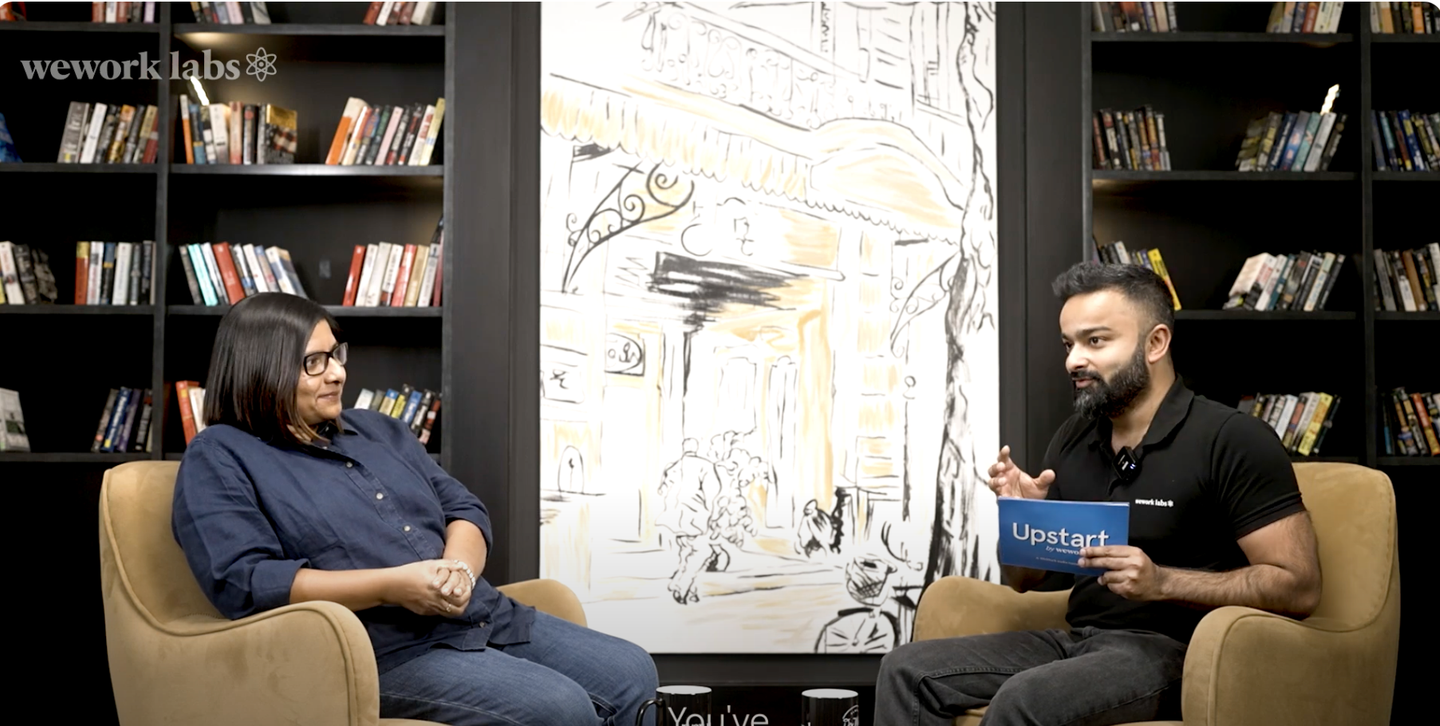WEWORK LABS
Financial Inclusion in India: Progress, Challenges, and Pathways to Success

Learn the journey of financial inclusion in India, highlighting progress, challenges, and future opportunities. Read about initiatives driving change and the role of technology in broadening access.
Introduction
The hallmark of progress for any country is its ability to include its citizens within its financial systems. Every individual, regardless of gender, race, creed, or socioeconomic status, should have access to financial tools to meet their needs and achieve their goals.
For a country like India, achieving this level of financial inclusion is a monumental task. With one of the largest and most diverse populations in the world, integrating everyone into the financial system involves overcoming significant challenges. These include linguistic diversity, varying levels of literacy, and differing socioeconomic conditions across the population.
This complex yet vital goal formed the basis of a conversation between Deena Jacob, Co-founder and CFO of the unicorn neobanking platform Open—a platform for business payments, and Arvind Radhakrishnan, Head of WeWork Labs, in the latest episode of Upstart by WeWork Labs.
Here’s how that conversation panned out.
Progress in Financial Inclusion
When one has to think about solving problems within the financial services industry in India, there is no exception to what is available to address. To begin with, financial literacy is still a struggle which makes it hard for them to grasp and use financial products efficiently.
In this scenario, in an ideal world, the ease of financial inclusion would be as simple as when you frown the transaction gets declined, notes Deena. “In between there are tons of issues to be sorted right now, right from data privacy to security and cybersecurity…. Everything from looking at the right footprint of a person [and their financial history]” she tells Arvind. According to Deena, India has understood solving these issues to a large extent but the solutions get more complex as we have over a billion people to account for.
Even on the infrastructure level, there are only about 14.6 bank branches per 100,000 adults, with a notably lower presence in rural areas. This can make it challenging for individuals in remote locations to access banking services, often requiring them to travel long distances. While urban centers are increasingly adopting digital financial services, rural regions often face poor internet connectivity and limited access to smartphones, making digital inclusion an uphill battle.
Beyond that, gender is still an overarching concern. One particular survey highlighted that 15% of female account holders have inactive accounts compared to 12% of male account holders indicating that women are potentially seeing greater barriers to maintaining their accounts as compared to men.
To improve adoption among women, it would be important to go beyond just marketing and doing educational sessions, says Deena. “Make them [women] experience the change and what it can do in their life… try and make them ambassadors to drive the change,” she says.
Watch the whole conversation here.
Challenges to Financial Inclusion
For decades, India has harboured a number of micro, small, and medium enterprises (MSME) within its economy. Today, India has approximately 63.39 million Micro, Small, and Medium Enterprises (MSMEs). This figure underscores the significance of MSMEs in the Indian economy, as they represent about 99% of all enterprises in the country and contribute nearly 30% to its Gross Domestic Product (GDP).
Yet, despite how vibrant the ecosystem for MSMEs are, they still continue to be plagued by a number of issues. For instance, 55% of businesses have resorted to delaying payments to maintain cash flow, according to one particular study. Since many small businesses also operate with a number of third party operators, they often have little to zero clarity on how their financial systems operate.
This is what paved the way for solutions like Open, says Deena. “Our dream was to give back the entrepreneur the complete sight of their business.” Over the course of time, Open also realised that issues related to oversight [with finances] when it comes to payments—wasn’t a problem that only the MSMEs grappled with. “Later we realised even with the normal signups we had many large enterprises also coming in.”
That being said, oversight into company finances isn’t a problem that plagues companies within the formalised economy. Several companies within the unorganised sector also have similar problems and issues with managing oversight. “They [entrepreneurs in the informal sector] also have the same issues of what is coming in cash, change, and UPI, they still need to see whether all the money has come in…the idea is that you shouldn’t be overwhelming them [the users] with too many things.” She adds that it's vital that solutions be thought of based on the particular type of customer and their backgrounds and needs.
You can watch Deena’s take from the whole episode here.
Role of Technology and Innovation
Technology and innovation are transforming financial inclusion by making financial services more accessible, affordable, and efficient. Fintech solutions like mobile banking, digital wallets, and blockchain are breaking down traditional barriers, enabling underserved populations to access banking, credit, and investment opportunities. AI-driven credit assessments help individuals with little to no credit history secure loans, while decentralized finance (DeFi) is reshaping access to capital. As technology continues to evolve, it will play a critical role in bridging financial gaps and driving economic empowerment on a global scale.
Strategies for enhancing financial inclusion
Understanding the financial needs of small businesses goes beyond simply addressing oversight issues; it also involves simplifying processes that are often cumbersome for entrepreneurs. Many MSMEs, especially in rural or semi-urban areas, struggle with navigating the complex financial ecosystem, from obtaining loans to managing daily transactions. Traditional banking systems often come with extensive paperwork and high-interest rates, making it difficult for small businesses to access timely credit. This creates a gap that fintech solutions are uniquely positioned to fill, by providing digital, user-friendly platforms that cater to the specific needs of these businesses.
Moreover, the integration of technology into financial management has paved the way for innovations such as automated accounting, real-time expense tracking, and AI-driven insights for better decision-making. These tools not only save time but also empower business owners to make informed choices about scaling operations, managing costs, and planning for the future. As Deena highlights, the key lies in creating solutions that are intuitive and adaptable, ensuring that even entrepreneurs with minimal technical knowledge can benefit from them. By bridging the gap between innovation and accessibility, platforms like Open are playing a pivotal role in redefining the financial landscape for small businesses in India.
FAQs
How does financial literacy affect financial inclusion efforts?
Financial literacy empowers individuals to effectively use financial services, make informed decisions, and fully participate in the economy.
How can rural areas benefit from financial inclusion efforts?
Rural areas gain access to essential financial services like digital banking, microloans, and mobile payments, enabling economic growth and stability.
How do public-private partnerships contribute to financial inclusion?
Public-private partnerships drive financial inclusion by combining government policies with private sector innovation to expand access to financial services.
How does financial inclusion contribute to economic development?
Financial inclusion stimulates economic growth by enabling entrepreneurship, job creation, and increased financial stability for individuals and businesses.
Why is financial inclusion important in addressing gender disparities
Financial inclusion empowers women with access to credit, savings, and investment opportunities, fostering economic independence and reducing gender inequality.
Related Blogs:

WEWORK LABS
With the Indian startup ecosystem gaining maturity, there are a number of things changing—startups are thinking more global in their ambitions, more companies are taking their companies to the market

WEWORK LABS
India may be home to unicorns and cutting-edge tech, but at its core, it's still a nation of farmers — with over 50% of the population dependent on agriculture.

